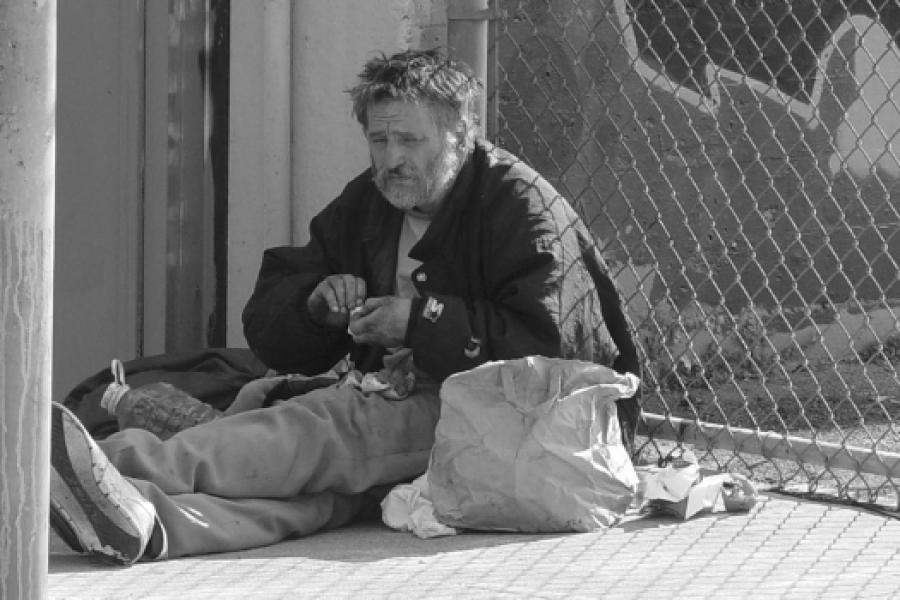The New York Times recently published an article titled, “If Housing is a Health Care Issue, Should Medicaid Pay the Rent?” Throughout the piece, the author tells various stories of how using Medicaid to pay for housing in Philadelphia and Arizona has helped some homeless individuals. She explained current federal rules that restrict how Medicaid funds can be used.
However, within the lengthy piece, there is only one paragraph that mentions potential drawbacks to using Medicaid to pay for rent. Surprisingly, the piece never adequately addresses its own title’s premise (housing is healthcare) and conclusion (Medicaid should pay rent).
Housing leads to improved health outcomes. But many other factors affect health outcomes as well, such as educational attainment and socioeconomic class.
Health care deals with matters of life and death, and all experiences affect one’s life and health. Thus, rhetorically speaking, is it possible to think of something that is not related to health care in some way? Cars transport us to hospitals. Technology gets us to WebMD. Food gives us nutrition. Education trains young doctors. If Medicaid pays for housing, should it not also pay for everything else, too?
Everything is interconnected in some way. But in terms of budget allocation, budgets have their limits. Careful allocation is key to successful programs. When housing is hailed as health care, there is no limiting principle.
The Times interviewed Estelle Richman, an activist who spent her career in government and non-profits addressing the homeless crisis in Philadelphia. Ironically, even she acknowledges that increasing federal Housing and Urban Development funding would be best to house the homeless. But, she argues, if that is not going to happen, pressuring Medicaid for funds is a good strategic move. Even key advocates recognize that the “housing is health care” argument is a rhetorical tool for a strategic end.
So why go after Medicaid dollars and not some other government program? The Times clarifies that, “[since] Medicaid is an entitlement, its budget expands to accommodate everyone who qualifies. No one has to ask Congress for funds.” But when advocates are intent on securing funds by any means necessary, consequences get overlooked.
Should Medicaid pay the rent?
While Medicaid secures financing from both the state and federal government, that ratio differs in every state. The federal government must pay at least 50 percent of state Medicaid costs and sometimes pays as much as 90 percent.
For example, Utah covers anyone who makes up to 138% of the federal poverty level, with the federal government covering 90 percent of the costs. But in New York, because the state has extensively expanded the program, the federal government only pays 54.7 percent. In California, the federal government pays just 64.1 percent of Medicaid costs. As a result, if the federal government approved Medicaid for homeless housing, it would likely disproportionately burden New York or California taxpayers more than taxpayers in other states.
This burden would be exacerbated by the fact that homeless individuals are not evenly distributed throughout the United States. As Kerry Jackson and Wayne Winegarden have written, although California makes up 12% of the U.S. population, 27% of all homeless persons live in California. While homelessness is decreasing in other states, it is increasing in New York and California.
Although Medicaid can legally “expand to accommodate everyone who qualifies” that does not mean it can practically expand to accommodate everyone who qualifies.
As Sally Pipes has written, Medicaid programs are laden with waste and inadequate care. Medicaid is already stretched thin – and only pays 62 cents per dollar that private insurance pays. Doctors and hospitals cannot afford to take on more Medicaid patients, which forces them to either raise prices on everyone else or deny care to low-income patients. Taking money from Medicaid funds to pay for housing will further strain our broken health care system.
The Times is correct: forcing Medicaid to pay for housing costs may help a few homeless individuals. But it is important to look at the big picture. Such a shift would greatly burden taxpayers and weaken our health care system’s ability to provide adequate care to the poor.
McKenzie Richards is a policy associate at the Pacific Research Institute.


